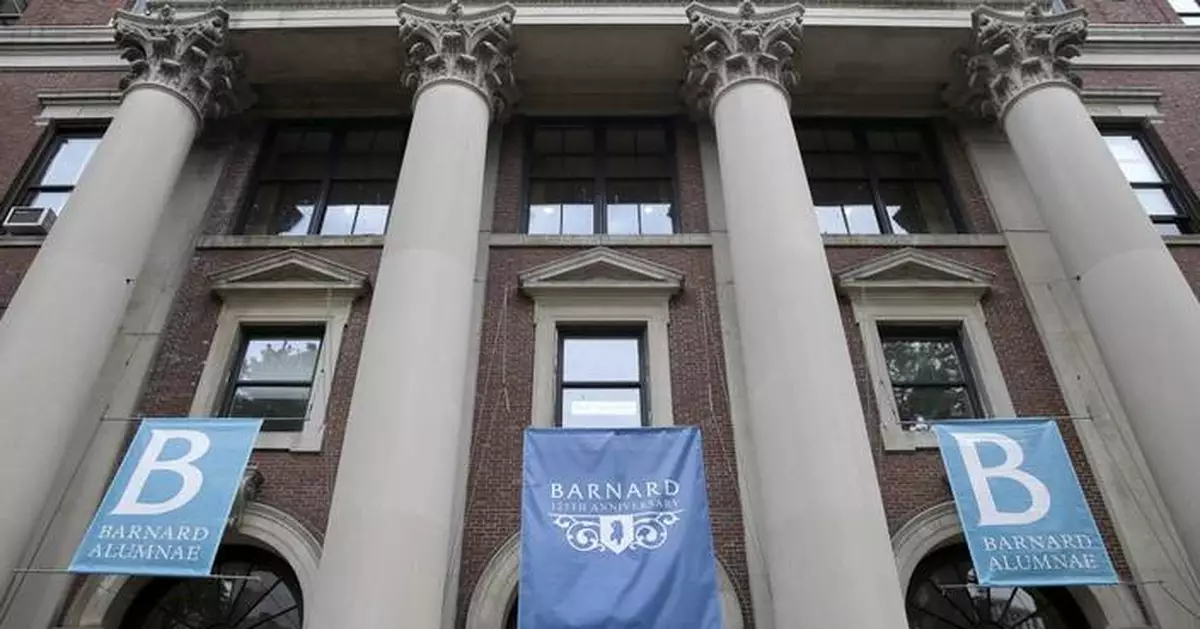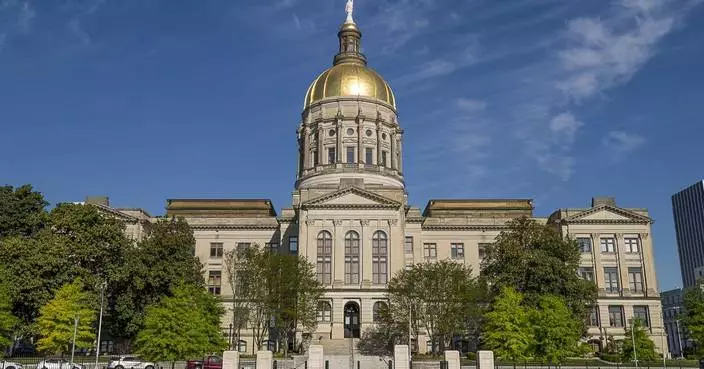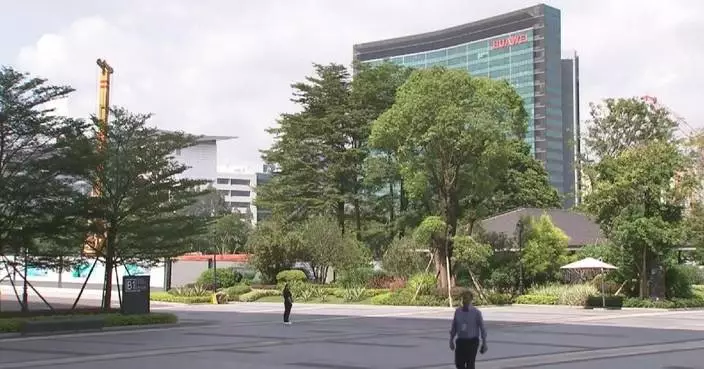NEW YORK (AP) — When employees at Barnard College received a survey this week asking if they were Jewish, among other personal questions, many initially disregarded the message as spam from a federal government impersonator.
The questionnaire, sent by text to their personal cellphones, linked to a Microsoft form bearing the logo of the U.S. Equal Employment Opportunity Commission. After instructing respondents to check a box indicating whether they were Jewish or Israeli, and whether they practiced Judaism, it asked if they had experienced harassment as a result, including “unwelcome comments, jokes or discussions.”
“Your first thought is, ‘this has to be fake,’” said Nara Milanich, a Barnard history professor who is Jewish.
But on Wednesday, the recipients of the text messages, which were first reported by The Intercept, learned they were authentic.
In an email to staff, Barnard’s general counsel, Serena Longley, confirmed the survey was part of a federal probe into whether the university had discriminated against Jewish employees. The EEOC, a federal regulator, had ordered Barnard turn over staff contact information “so that it could offer employees the option to voluntarily participate in their investigation,” Longley wrote.
“Participation in the survey is voluntary,” she added.
Barnard faculty estimated that well over half of the university’s staff had received the messages, which have set off anger and panic in recent days.
“That the government is putting together lists of Jews, ostensibly as part of a campaign to fight antisemitism, is really chilling,” Milanich said. “As a historian, I have to say it feels a little uncomfortable.”
Neither the EEOC nor Barnard College responded to emails seeking comment.
The surveys come as the Trump administration has enacted funding cuts and other punitive measures against universities across the country that it claims have not done enough to quell antisemitism on campus. Barnard, a sister school of Columbia University, has been the site of frequent and at times disruptive pro-Palestinian protests against Israel’s military campaign in Gaza.
Last week, Columbia University warned a smaller subset of its faculty that they may be contacted by EEOC as part of a new investigation into antisemitism on campus. The email, reviewed by The Associated Press, indicated the federal regulator was interested in speaking with members of the Institute for Israel and Jewish Studies, as well as the Task Force on Antisemitism.
It was not immediately clear whether those members had received the same questionnaire. Inquiries to Columbia University were not returned.
Debbie Becher, a Sociology professor at Barnard, who is also Jewish, said the surveys suggested the Trump administration was “fishing for complaints about discrimination based on Jewish status.”
“They’re not concerned about antisemitism, they’re inflaming antisemitism,” Becher added. “They’re concerned with tearing down the institutions of higher education and shutting down any speech that is pro-Palestinian or critical of Israel.”
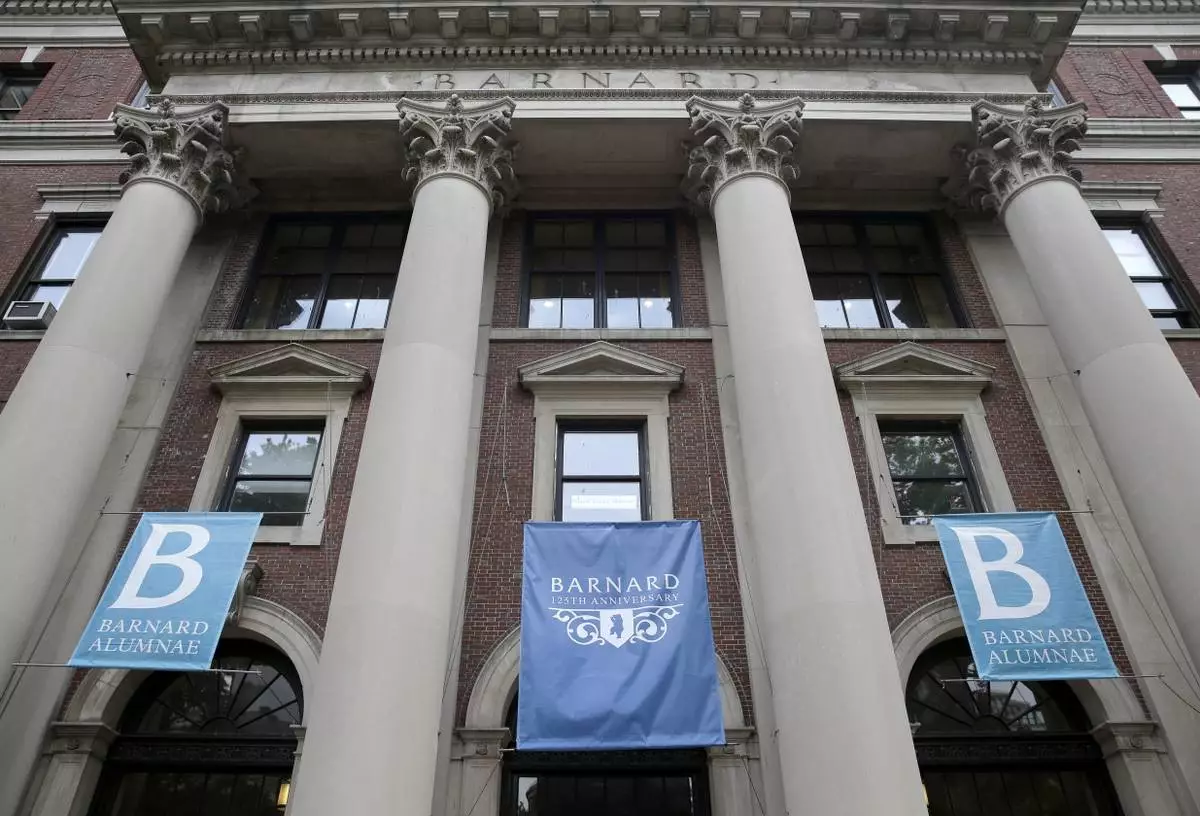
FILE - Banners hang from a building at Barnard College, May 28, 2015, in New York. (AP Photo/Seth Wenig, File)
New Jersey Transit train engineers went on strike Friday, leaving an estimated 350,000 commuters in New Jersey and New York City to seek other means to reach their destinations or consider staying home.
Groups of picketers gathered in front of transit headquarters in Newark and at the Hoboken Terminal, carrying signs that said “Locomotive Engineers on Strike” and “NJ Transit: Millions for Penthouse Views Nothing for Train Crews.” Passing drivers honked their horns.
The walkout comes after the latest round of negotiations on Thursday didn’t produce an agreement. It is the state’s first transit strike in more than 40 years and comes a month after union members overwhelmingly rejected a labor agreement with management.
“We presented them the last proposal; they rejected it and walked away with two hours left on the clock," said Tom Haas, general chairman of the Brotherhood of Locomotive Engineers and Trainmen.
NJ Transit CEO Kris Kolluri described the situation as a “pause in the conversations.”
“I certainly expect to pick back up these conversations as soon as possible,” he said late Thursday during a joint news conference with New Jersey Gov. Phil Murphy. “If they’re willing to meet tonight, I’ll meet them again tonight. If they want to meet tomorrow morning, I’ll do it again. Because I think this is an imminently workable problem. The question is, do they have the willingness to come to a solution.”
Murphy said it was important to “reach a final deal that is both fair to employees and at the same time affordable to New Jersey’s commuters and taxpayers.”
"Again, we cannot ignore the agency’s fiscal realities,” Murphy said.
The announcement came after 15 hours of nonstop contract talks, according to the union.
NJ Transit — the nation’s third-largest transit system — operates buses and rail in the state, providing nearly 1 million weekday trips, including into New York City. The walkout halts all NJ Transit commuter trains, which provide heavily used public transit routes between New York City’s Penn Station on one side of the Hudson River and communities in northern New Jersey on the other, as well as the Newark airport, which has grappled with unrelated delays of its own recently.
The agency had announced contingency plans in recent days, saying it planned to increase bus service, but warned riders that the buses would only add “very limited” capacity to existing New York commuter bus routes in close proximity to rail stations and would not start running until Monday. The agency also will contract with private carriers to operate bus service from key regional park-and-ride locations during weekday peak periods.
However, the agency noted that the buses would not be able to handle close to the same number of passengers — only about 20% of current rail customers — so it urged people who could work from home to do so.
Even the threat of it had already caused travel disruptions. Amid the uncertainty, the transit agency canceled train and bus service for Shakira concerts Thursday and Friday at MetLife Stadium in New Jersey.
The parties met Monday with a federal mediation board in Washington to discuss the matter, and a mediator was present during Thursday’s talks. Kolluri said Thursday night that the mediation board has suggested a Sunday morning meeting to resume talks.
Wages have been the main sticking point of the negotiations between the agency and the Brotherhood of Locomotive Engineers and Trainmen that wants to see its members earn wages comparable to other passenger railroads in the area. The union says its members earn an average salary of $113,000 a year and says an agreement could be reached if agency CEO Kris Kolluri agrees to an average yearly salary of $170,000.
NJ Transit leadership, though, disputes the union’s data, saying the engineers have average total earnings of $135,000 annually, with the highest earners exceeding $200,000.
Kolluri and Murphy said Thursday night that the problem isn’t so much whether both sides can agree to a wage increase, but whether they can do so under terms that wouldn’t then trigger other unions to demand similar increases and create a financially unfeasible situation for NJ Transit.
Congress has the power to intervene and block the strike and force the union to accept a deal, but lawmakers have not shown a willingness to do that this time like they did in 2022 to prevent a national freight railroad strike.
The union has seen steady attrition in its ranks at NJ Transit as more of its members leave to take better-paying jobs at other railroads. The number of NJ Transit engineers has shrunk from 500 several months ago to about 450 today.
Associated Press reporters Hallie Golden in Seattle and Josh Funk in Omaha, Nebraska, contributed to this report.
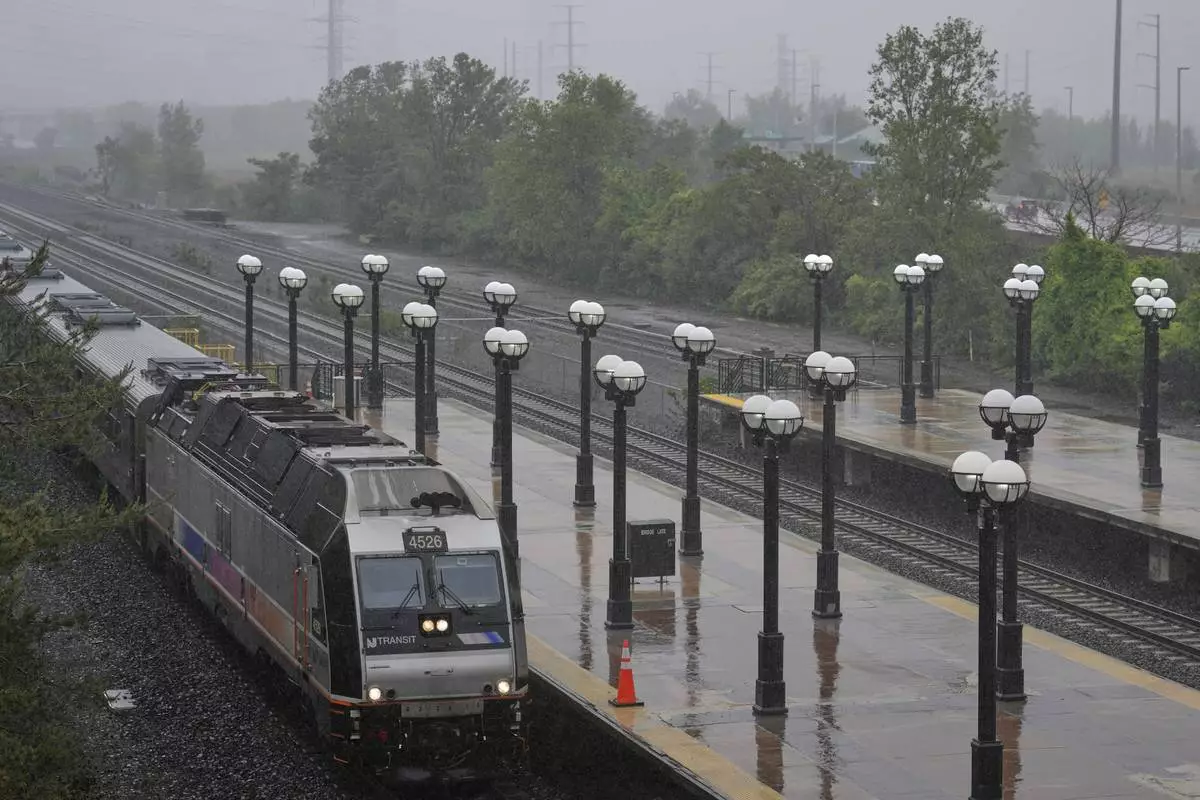
An NJ Transit train pulls into the Secaucus Junction station in Secaucus, N.J., Wednesday, May 14, 2025. (AP Photo/Seth Wenig)
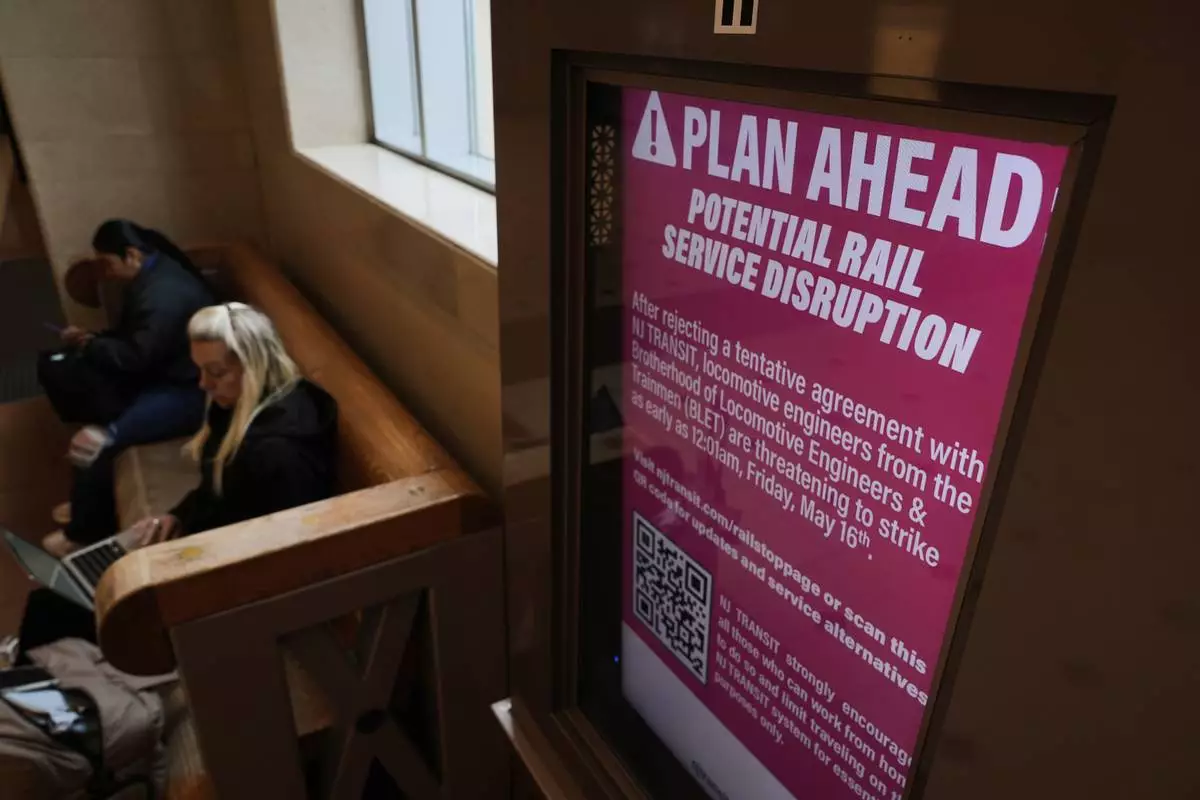
An electronic display advises commuters of potential NJ Transit service disruptions at the Secaucus Junction station in Secaucus, N.J., Wednesday, May 14, 2025. (AP Photo/Seth Wenig)
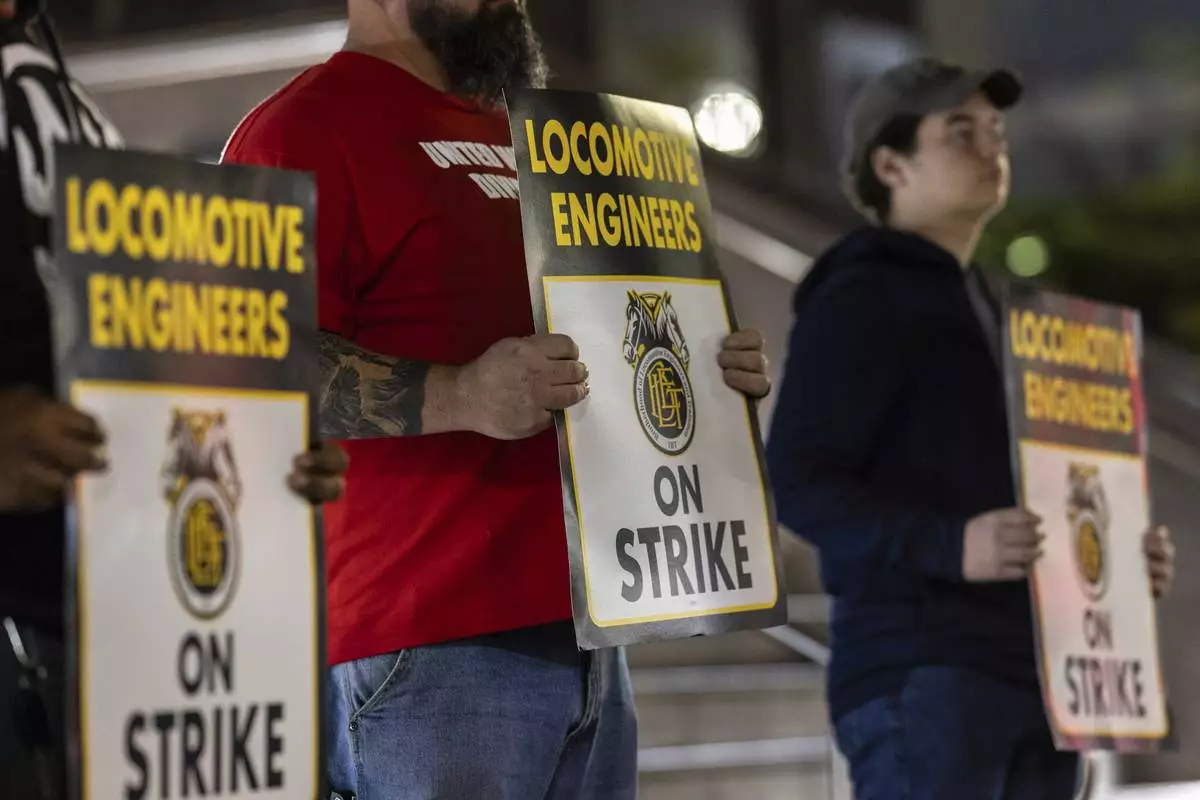
Union members from the Brotherhood of Locomotive Engineers and Trainmen form a picket line outside the NJ Transit Headquarters on Friday, May 16, 2025 in Newark, New Jersey. (AP Photo/Stefan Jeremiah)
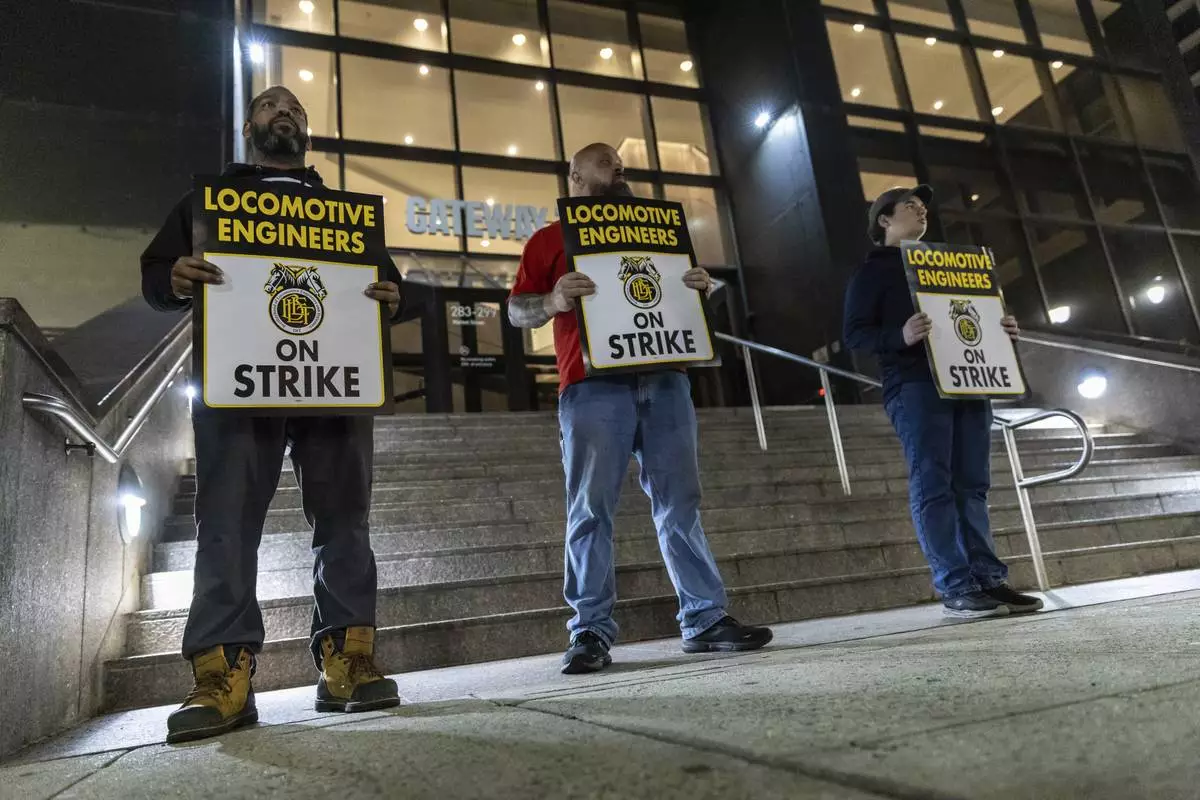
Union members from the Brotherhood of Locomotive Engineers and Trainmen form a picket line outside the NJ Transit Headquarters on Friday, May 16, 2025 in Newark, New Jersey. (AP Photo/Stefan Jeremiah)



